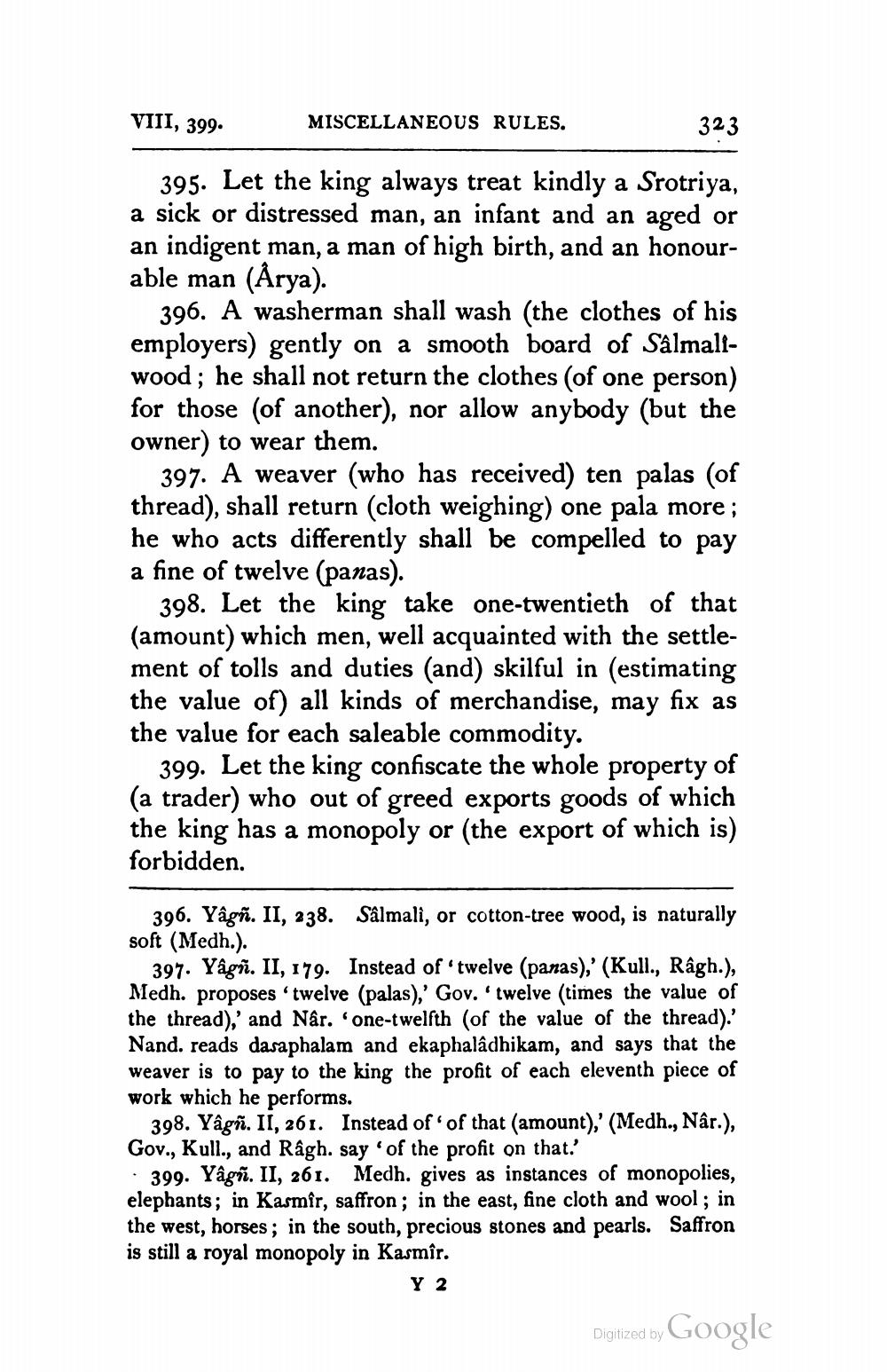________________
VIII, 399.
MISCELLANEOUS RULES.
323
395. Let the king always treat kindly a Srotriya, a sick or distressed man, an infant and an aged or an indigent man, a man of high birth, and an honourable man (Arya).
396. A washerman shall wash (the clothes of his employers) gently on a smooth board of Sålmallwood; he shall not return the clothes (of one person) for those (of another), nor allow anybody (but the owner) to wear them.
397. A weaver (who has received) ten palas (of thread), shall return (cloth weighing) one pala more; he who acts differently shall be compelled to pay a fine of twelve (panas).
398. Let the king take one-twentieth of that (amount) which men, well acquainted with the settlement of tolls and duties (and) skilful in (estimating the value of) all kinds of merchandise, may fix as the value for each saleable commodity.
399. Let the king confiscate the whole property of (a trader) who out of greed exports goods of which the king has a monopoly or (the export of which is) forbidden.
396. Yâgñ. II, 238. Sâlmali, or cotton-tree wood, is naturally soft (Medh.).
397. Yâgñ. II, 179. Instead of twelve (panas),' (Kull., Râgh.), Medh. proposes 'twelve (palas),' Gov. 'twelve (times the value of the thread),' and Når. 'one-twelfth (of the value of the thread).' Nand. reads dasaphalam and ekaphaladhikam, and says that the weaver is to pay to the king the profit of each eleventh piece of work which he performs.
398. Yâgñ. II, 261. Instead of of that (amount),' (Medh., Nâr.), Gov., Kull., and Râgh. say of the profit on that.' · 399. Yâgñ. II, 261. Medh. gives as instances of monopolies, elephants; in Kasmîr, saffron ; in the east, fine cloth and wool ; in the west, horses; in the south, precious stones and pearls. Saffron is still a royal monopoly in Kasmîr.
Y 2
Digitized by
Digitized by Google




